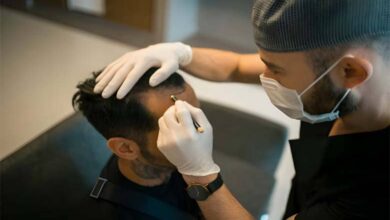10 Tips For How To Support Someone In Recovery From Addiction

A lot of people are facing issues with drugs and alcohol in this world. A lot of people are addicted to individuals who are suffering from many issues, if not then the person is addicted to individuals for themselves. Those who have loved ones in recovery from addictions, come with foremost having their support and healing as well. The person can recover from this addiction with proper treatment. Ohio community health recovery centers will help in coming out from trauma and addiction.
- Check in on them and then listen properly
When many people are facing loneliness it is important for checking to loved ones and then see how they feeling and doing in their life. People need to get heard and listened to as well. Be sure that people are interested and then get engaged when a loved one is sharing with you. You should be concerned and paraphrase them to make sure that people will understand them and then show them what people are listening for. In Ohio community health recovery centers the person’s mental health will be treated properly.
- Reduce friction and unnecessary arguments
Family stress can lead for having contribute to drug and alcohol relapse and underlying mental health issues like depression and anxiety. You can do your part in developing healthy communication and then dialogue to help facilitate constructive support. You can try to spend and have a positive time together as well as try to stay away from unwanted topics.
- Encourage healthy habits
Whether it is open communication, proper sleep maintenance, exercise, eating healthy meals regularly, or getting away from alcohol, drugs, and nicotine. That will show support by living a good lifestyle. It has many benefits beyond supporting loved ones. It will help to improve the own mental, physical, and spiritual health. It can help as a source of bonding and healing between you and your loved one in the recovery phase.
- Don’t judge
In individuals, the recovery from drugs and alcohol dealt with a great deal of guilt and shame in the past and it will still be holding in the negative feelings. It comes with the need to make me feel worse for judging. It comes with judging, accepting them, and appreciating what comes.
- Encourage and support them
Show loved ones with encouragement and support by demonstrating how the person with their recovery. It comes with encouragement and support for a long way.
- Practice patience
While any person is dealing with recovery, they still might engage in unhealthy behaviors or make poor decisions. It is much more than getting abstinence from drugs and alcohol, healing and growth will take time. The relapses or setbacks for happening. If it will come, it will continue to show love, concern, and support and practice patience though.
- Educate yourself on addiction and recovery
Knowing that addiction is not a matter of willpower, it is not a moral feeling. Addiction is a disease that hijacks brain reward systems and disrupts the part of the brain responsible for impulse controls it will create neurally embedded associations and memories for individuals’ addictive behaviors, resulting in having things that trigger them in not even conscious mind. Individuals relapse within 30 days of leaving with inpatient drug and alcohol treatment center and it is for the first year of recovery. The person cannot fooled by thinking of one with addictions.
- Set Healthy Boundaries
Poor boundaries are formed during active addiction and it will continue with recovery. Individuals need to take inventory of what enables, co-dependency or unhealthy behaviors. It has benefits for the individual’s involvement.
- Reduce environmental triggers
Avoid keeping alcohol or drugs at home and abstain from using alcohol and drugs for yourself. If you want to drink alcohol, you have to make sure that you don’t have to make your present for the loved one in the recovery phase. If you have had a prescription for keeping them up and out of charge for a loved one in recovery. You can help them for avoiding a social situation where they take the risk of relapse or they use to support them by going with them to keep them accountable.
- Learn to let people go, engage in self-care, and then find for own support
It is very important to heal oneself. Having proper self-care and support not to help you but to demonstrates recovery-related behaviors for loved ones in the recovery stage. Traditional support for loved ones will help mutual help groups like smart family and friends and such groups with family support groups for various inpatients.




